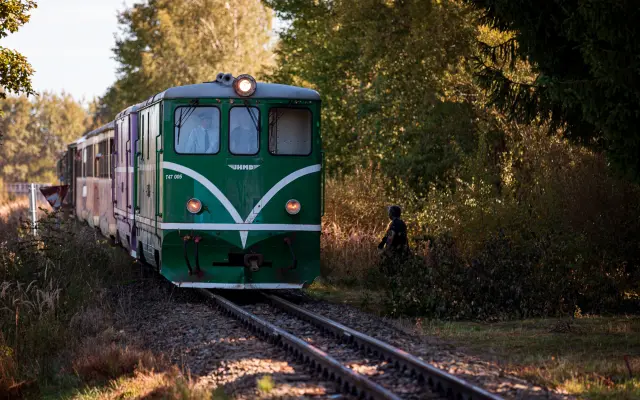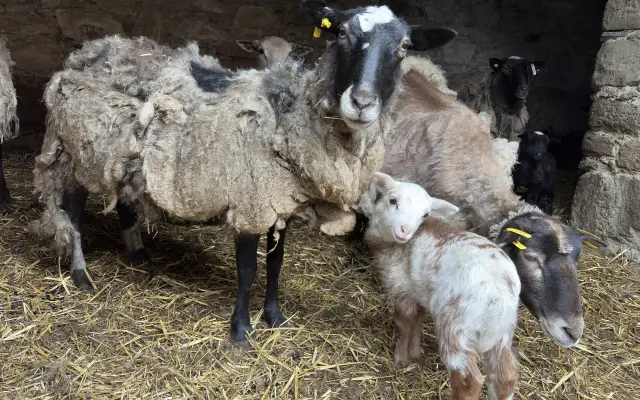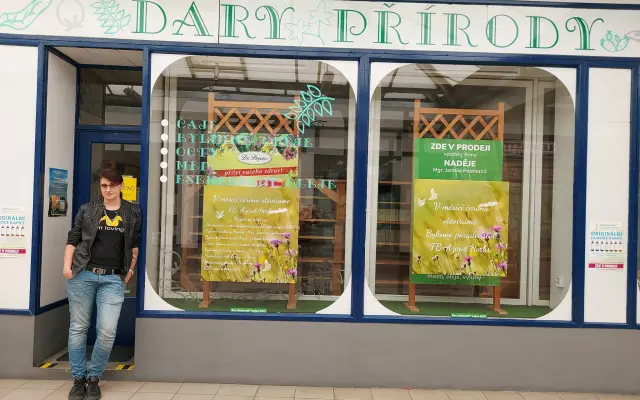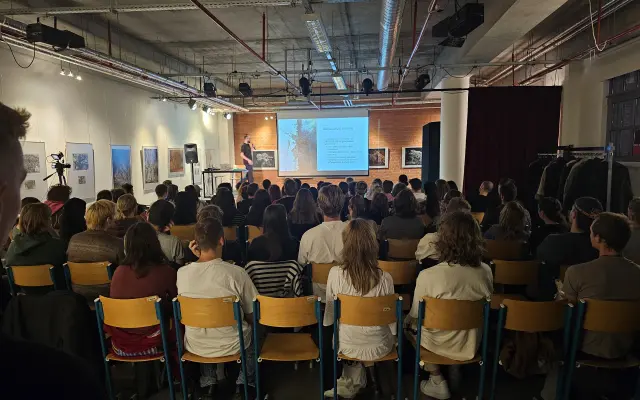Hudba navzdory válce: pomozte vydat album mladým zpěvákům z Konga
z 100 000 Kč
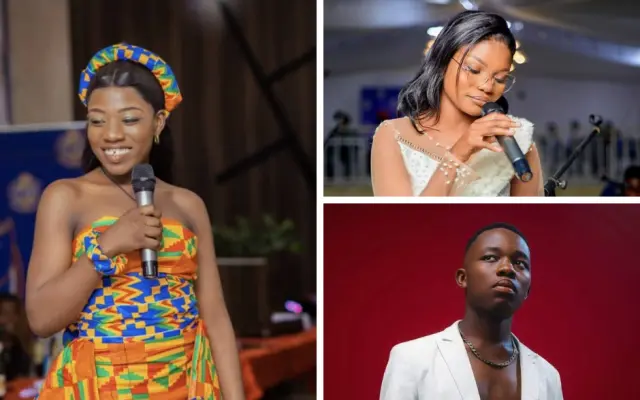
Tento projekt jsme ukončili.
Toto jsou další příběhy, které můžete podpořit.

Hudba navzdory válce: pomozte vydat album mladým zpěvákům z Konga
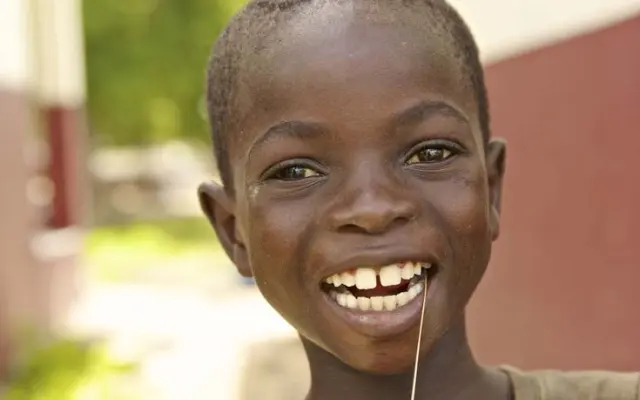
Dobrý pocit/ Good feeling
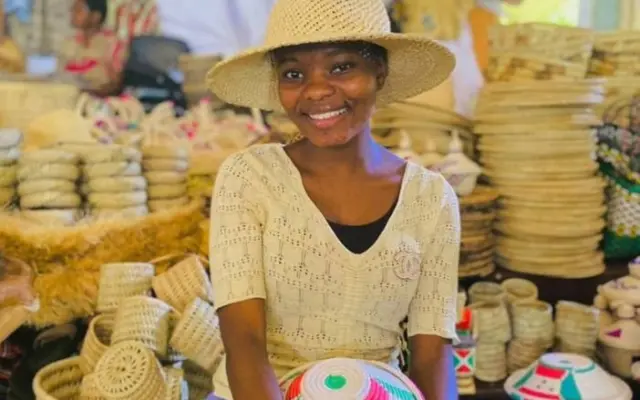
Digitální album s poděkováním/ Digital album with a thank you
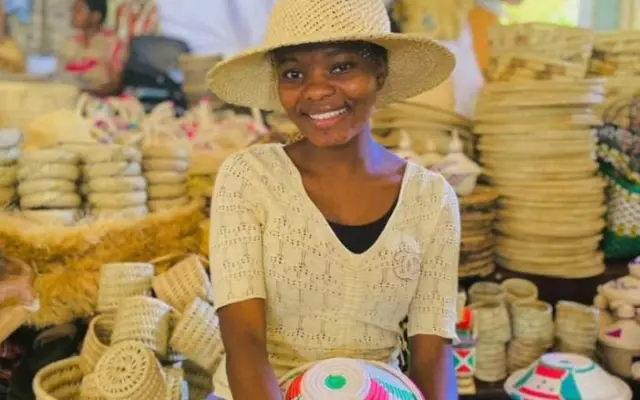
Album s přednostním poslechem a náhledem do zákulisí/ Album with preferred listening and behind-the-scenes insight
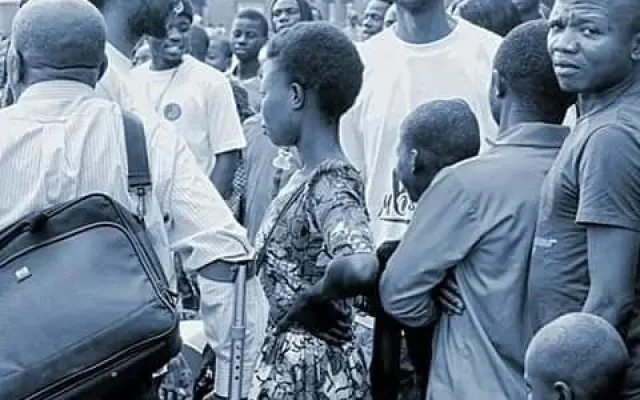
Pozdrav z Bukavu/ Greetings from Bukavu
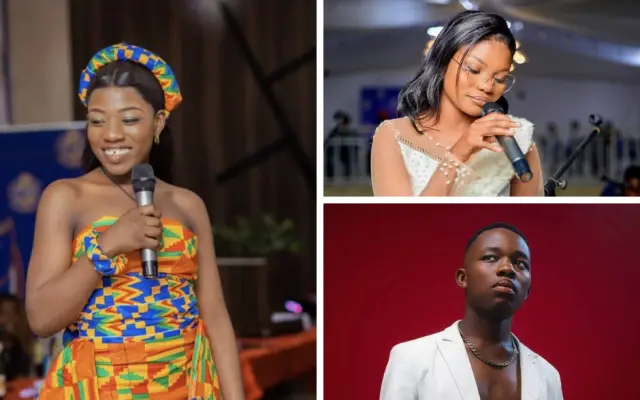
Speciální podpora – all inclusive balíček/ Special support – all inclusive package
26. 11. 2025 23:29
Přednostní poslech alba právě odeslán
Milí přátelé, přispěvatelé a podporovatelé,
máme pro vás skvělou novinku! Právě jsme odeslali přednostní poslech alba všem podporovatelům, kteří si jej vybrali jako odměnu.
Už za týden rozešleme digitální album i všem ostatním přispěvatelům. A máte se opravdu na co těšit: deska se povedla tak, že ji schválila i naše nejpřísnější porota — naše batolata — která se při prvním poslechu spontánně pustila do tance. (A to je, jak každý rodič ví, ocenění vyšší než jakákoli hudební cena.)
Máme už i první reakce podporovatelů. Jeden z nich si okamžitě zamiloval hostující zpěvačku Dorcas. Neboť Dorcas není jen výjimečný hlas, ale také (shodou okolností!) jméno jedné z malých vodních potvůrek, vířníka brachionus dorcas, který prý žije i v jezeře Kivu. Nebojte, pokud se nezajímáte o mikrofaunu, nemusíte sahat po učebnici biologie: na našem albu od zpěvačky Dorcas najdete hlavně nádherný gospel (fotku vířníka ale i tak přikládáme).
Ještě jednou vám všem z celého srdce děkujeme. Bez vaší podpory, důvěry a energie by album Hudba navzdory válce nikdy nevzniklo.
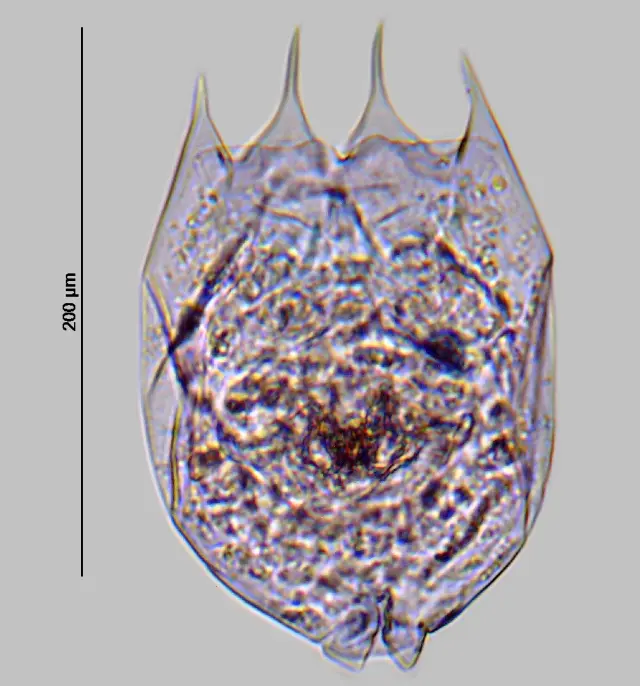
Představení projektu
The English text is in italics after each Czech paragraph
Koncem minulého roku došlo ve Východním Kongu, v oblasti zvané Kivu, k eskalaci dlouhotrvajícího konfliktu.
Ozbrojená skupina zvaná hnutí M23 postupně obsadila řadu měst, včetně největšího města Goma, a naplno propukla válka. Letos v únoru bylo obsazeno i město Bukavu, druhé největší v oblasti, a život více než milionu jeho obyvatel se zásadně změnil. Výrazně se zhoršila bezpečnostní i ekonomická situace. Prudce vzrostly ceny potravin a základních potřeb, mnoho lidí přišlo o práci – ať už pracovali na sebe, pro stát, nebo pro zahraniční organizace – a někteří byli nuceni uprchnout. Zároveň došlo ke snížení mezinárodní pomoci.
Late last year, a long-running conflict escalated in the Kivu region of eastern Congo.
An armed group called the M23 movement gradually captured a number of towns, including the largest city, Goma, and war broke out in earnest. This February, the city of Bukavu, the second largest in the region, was also captured, and the lives of more than a million inhabitants were fundamentally changed. The security and economic situation has deteriorated significantly. The price of food and basic necessities has risen sharply, many people have lost their jobs – whether they were working for themselves, for the state or for foreign organisations – and some have been forced to flee. At the same time, international aid has been reduced.
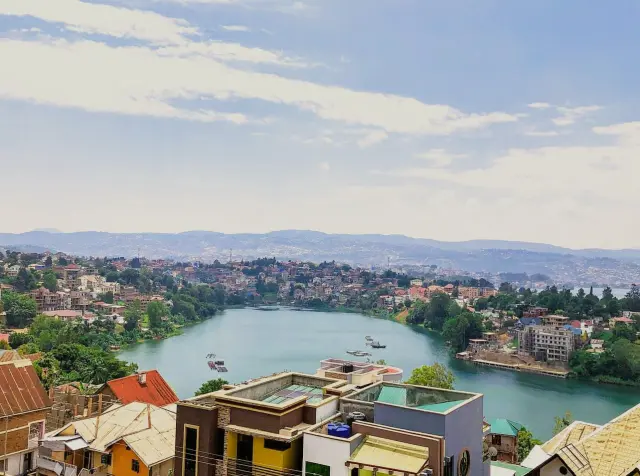
Válka dopadá i na kulturu – a především na samotné umělce.
Festivaly, koncerty, výstavy a další veřejné akce byly zrušeny. Řada kulturních projektů přišla o financování, některé instituce, které v minulosti umění podporovaly – například Francouzský institut – byly uzavřeny. Umělci ztratili nejen zdroj příjmu, ale i možnost veřejně prezentovat svou tvorbu. V důsledku zhoršené ekonomické situace lidé vydávají veškeré prostředky převážně na základní potřeby a na podporu umění nezbývají peníze.
The war also affects culture – and especially the artists themselves.
Festivals, concerts, exhibitions and other public events were cancelled. Many cultural projects lost funding, and some institutions that had supported the arts in the past – such as the French Institute – were closed. Artists lost not only a source of income but also the opportunity to present their work publicly. As a result of the worsening economic situation, people are spending all their resources mainly on basic necessities and there is no money left to support the arts.
Náš projekt:
V této situaci chceme podpořit místní umělce vznikem hudebního alba tří mladých začínajících zpěváků. Projekt jim umožní nejen získat drobný příjem – což v místním kontextu často znamená obživu pro celou rodinu a podporu širší komunity – ale také získat další profesionální zkušenosti a prezentovat svůj talent mimo oblast zasaženou válkou, včetně online prostoru. To jim může pomoci zajistit si obživu i do budoucna. Do tvorby alba bude zapojena řada dalších lidí (umělci, zvukaři, producenti atd.), kterým projekt také umožní výdělek.
Our project:
In this situation we want to support local artists by creating a music album of three young aspiring singers. The project will allow them not only to earn a small income – which in the local context often means a living for the whole family and support for the wider community – but also to gain further professional experience and showcase their talent outside the war-affected area, including in the online space. This can help them to secure their livelihoods in the future. A number of other people (artists, sound engineers, producers, etc.) will be involved in the production of the album and will also be able to earn income from the project.
Představení zpěváků:
Introduction of the singers:
Bts Paka
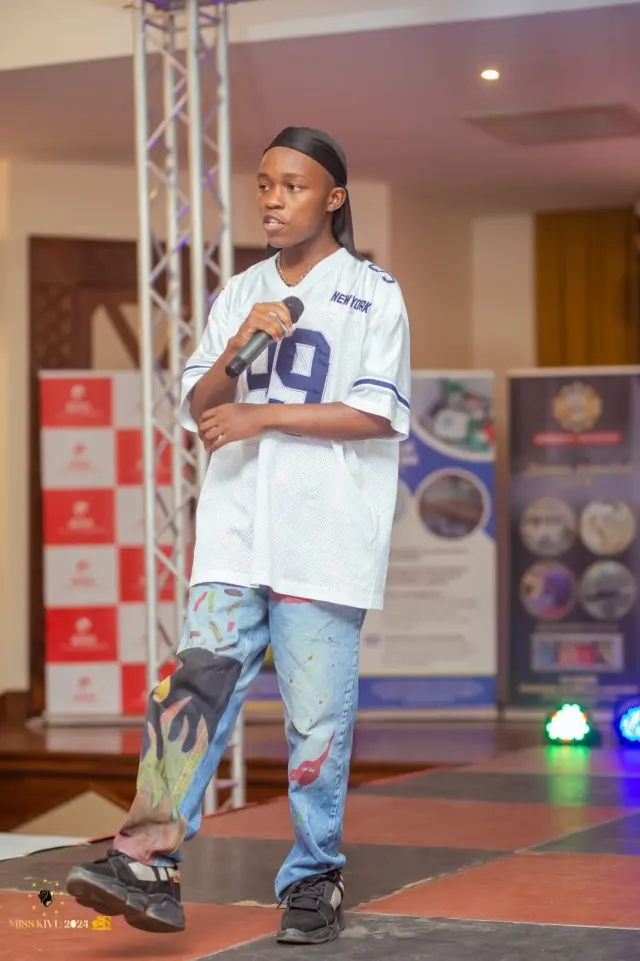
Nacinda Ushindi, vystupující pod jménem Bts Paka, se narodil v Bukavu. Je mu 21 let a má čtyři sourozence. Hudební kariéru začal v osmi letech v kostelním sboru, nejprve jako bubeník, později jako zpěvák. Svého otce nikdy pořádně nepoznal – zemřel, když mu byly dva roky. Hudba se pro něj stala útočištěm, tichou přítomností, která ho provázela, když nikdo jiný nemohl.
Ve dvanácti letech se zúčastnil místní soutěže „Best of Baghdad“, kde zaujal svým dojímavým hlasem a afro-rumba stylem.
„Když je hudba jediným prostředkem k obživě, je to v této době velmi těžké,“ říká. Přesto dál zpívá – jako způsob resistence vůči tichu, které válka vnucuje mnoha mladým talentům.
Nacinda Ushindi, performing under the name Bts Paka, was born in Bukavu. He is 21 years old and has four siblings. He started his musical career at the age of eight in a church choir, first as a drummer and later as a singer. He never knew his father properly – he died when he was two years old. Music became a refuge for him, a quiet presence that accompanied him when no one else could.
At the age of twelve, he entered a local “Best of Baghdad” competition, where he impressed with his moving voice and afro-rumba style.
“When music is the only means of making a living, it's very difficult in these times,” he says. Yet he continues to sing – as a way of resisting the silence that war imposes on many young talents.
Auras
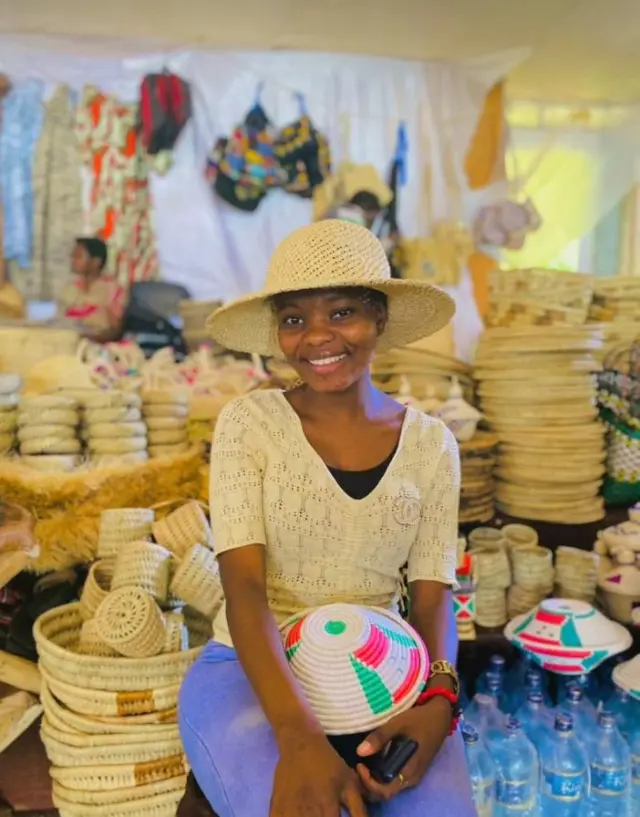
Aurélie Mundundu Neema, vystupující pod pseudonymem Auras, pochází také z Bukavu. Je nejmladší z osmi sourozenců a dnes je jí 19 let. I ona objevila vášeň pro hudbu v dětském sboru v kostele, a to již ve svých šesti letech. Postupně se její projev zdokonaloval, a začala psát vlastní texty, hledat svůj osobitý styl.
„Miluji hudbu, protože mně přenáší jinam, uklidňuje moje srdce a pomáhá mi vyjádřit to, co slovy nejde říct“, říká s dojemnou upřímností.
Její čistý, jemný hlas nese naději mládeže, která se nenechá umlčet válkou. Přestože je velmi mladá, píše písně plné emocí – o odvaze, zranitelnosti, o světle v temnotě. Před válkou Auras zpívala v restauracích, na večírcích a různých událostech. Ve městě, které se uzavírá samo do sebe, Auras zpívá dál. Skrze své písně chce propůjčit hlas těm, kteří nemají mikrofon, ale cítí stejnou bolest, stejné pochybnosti, stejnou osamělost.
Aurélie Mundundu Neema, who goes by the pseudonym Auras, is also from Bukavu. She is the youngest of eight siblings and is now 19 years old. She too discovered her passion for music in the children's choir at church, at the age of six. Gradually her expression improved, and she began to write her own lyrics, searching for her own distinctive style.
“I love music because it transports me to other places, calms my heart and helps me express what words can't say,” she says with poignant honesty.
Her pure, gentle voice carries the hope of youth who will not be silenced by war. Although she is very young, she writes songs full of emotion – about courage, vulnerability, light in the darkness. Before the war, Auras sang in restaurants, at parties and events. In a city that is closing in on itself, Auras continues to sing. Through her songs, she wants to lend a voice to those who don't have a microphone but feel the same pain, the same doubts, the same loneliness.
Tween Baby
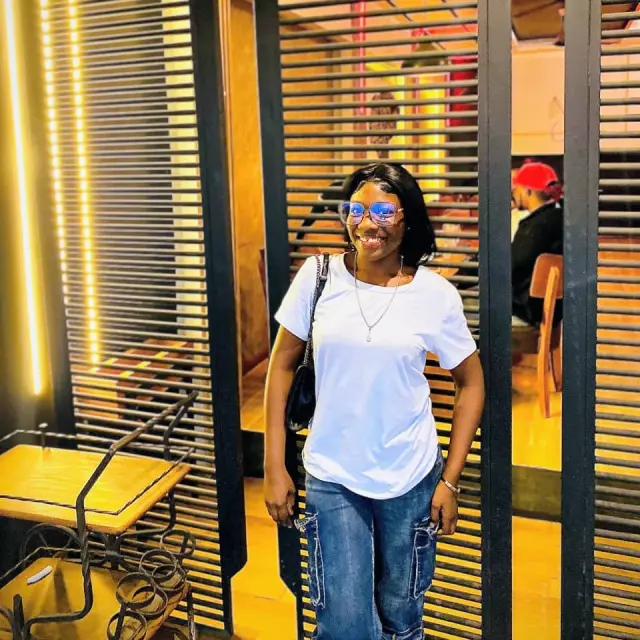
Aline Masheka, známá pod uměleckým jménem Tween Baby, pochází z Gomy (pozn. největší město ve Východním Kongu). Pochází ze sedmi dětí, dnes je jí 19 let a žije v Bukavu. Nemá žádné formální hudbení vzdělání, má však přirozený talent. Svůj hlas rozvíjela nasloucháním, napodobováním a prožíváním. Povzbuzena svým okolím a pozitivními ohlasy na první nahrávky sdílené online se nedávno rozhodla vydat na sólovou cestu.
„Hudba mi umožňuje vyjádřit to, co cítím, aniž bych musela mluvit. Uklidňuje mě, motivuje a provází v každém okamžiku. Pro mně je hudba víc než zvuk – je to živá emoce“.
Navzdory složitému každodennímu životu dál tvoří. Její písně vycházejí z frustrace i strachu, které proměňuje v melodii. Jejím snem je nabídnout světu jiný obraz Bukavu – obraz emocí, krásy a síly kreativní mládeže, nejen války.
Aline Masheka, known by her stage name Tween Baby, hails from Goma (note: the largest city in Eastern Congo). She is one of seven children and is now 19 years old and lives in Bukavu. She has no formal musical training, but has a natural talent. She developed her voice by listening, imitating and experiencing. Encouraged by her surroundings and the positive responses to her first recordings shared online, she recently decided to embark on a solo journey.
„Music allows me to express what I feel without having to speak. It soothes, motivates and guides me in every moment. For me, music is more than sound – it's a living emotion“.
Despite the complexity of everyday life, she continues to create. Her songs come out of frustration and fear, which she turns into melody. Her dream is to offer the world a different image of Bukavu – one of emotion, beauty and the power of creative youth, not just war.
Kdo za projektem stojí?
Za projektem stojí nezisková organizace ProdAfrica+, kterou v roce 2017 založil zpěvák a umělec Yannick Matita z touhy vytvořit prostor, kde mladí umělci mohou tvořit, svobodně se vyjadřovat a žít ze svého umění. Realizace alba je součástí jejího klíčového programu Virtwelo, zaměřeného na podporu místních talentů.
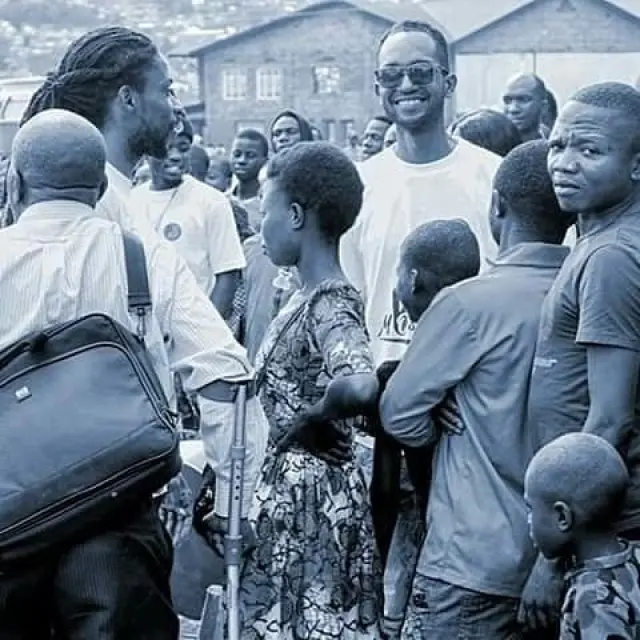
Tento sen vzešel z jeho vlastní cesty – z jeho zkušenosti zpěváka v regionu poznamenaném nejistotou, chudobou a opakujícími se konflikty. V takové realitě není umění volbou pohodlí, ale volbou odvahy.
„Vím, jaké to je, když máš jen svůj hlas, abys vůbec zůstal na nohou. Vím, jaké to je, mít píseň v srdci, ale žádný způsob, jak ji nechat zaznít. Právě proto jsem vytvořil ProdAfrica+“.
Od svého založení se organizace stala oporou mnoha mladých umělců – v Bukavu, Gomě i jinde v regionu. Má za sebou řadu projektů realizovaných ve spolupráci s místními i zahraničními organizacemi, zaměřených na vzdělávání, podporu umění a produkci. Více o organizaci a jejích projektech se můžete dozvědět na jejích webových stránkách https://prodafricaplus.virtwelo.com/.
Organizovat crowdfundingovou kampaň přímo z Konga je velmi obtížné – platformy neumožňují použití konžského bankovního účtu ani registraci z této země. Proto s organizací kampaně pomáhám já, Martina Matita, z České republiky.
Behind the project is the non-profit organization ProdAfrica+, founded in 2017 by singer and artist Yannick Matita out of a desire to create a space where young artists can create, express themselves freely and live from their art. The production of the album is part of its flagship programme Virtwelo, aimed at supporting local talent.
This dream came out of his own journey – his experience as a singer in a region marked by insecurity, poverty and recurring conflict. In such a reality, art is not a choice of comfort, but a choice of courage.
„I know what it's like to have only your voice to stay on your feet at all. I know what it's like to have a song in your heart but no way to let it ring out. That's why I created ProdAfrica+“.
Since its inception, the organization has become a support to many young artists – in Bukavu, Goma and elsewhere in the region. It has implemented a number of projects in collaboration with local and international organisations, focusing on education, arts support and production. You can find out more about the organisation and its projects on its website https://prodafricaplus.virtwelo.com/.
It is very difficult to organise a crowdfunding campaign directly from Congo – the platforms do not allow the use of a Congolese bank account or registration from the country. Therefore, I, Martina Matita, from the Czech Republic, am helping to organize the campaign.
Na co vybrané peníze použijeme?
Vytvořit takový projekt vyžaduje prostředky. Chceme zajistit, aby umělci mohli tvořit v profesionálních podmínkách – s důstojnou odměnou, kvalitním studiovým zázemím, hudební produkcí, technickou podporou, dopravou i ubytováním.
Celkový rozpočet projektu je 100 000 czk. Je to částka dostačující k tomu, aby se celý projekt uskutečnil na úrovni, kterou si umělci i jejich poselství zaslouží.
Co konkrétně podpoříte?
- 3 zpěváky, kteří dostanou spravedlivou odměnu za svou tvorbu
- Studiové nahrávky v důstojných podmínkách s profesionálním vybavením
- Hudebníky a producenty, kteří album obohatí svým uměním
- Digitální distribuci alba, aby se písně dostaly přes hranice
- Organizaci, logistiku, dopravu a technické zázemí
- Malá částka bude použita na poplatek služby Western Union, neboť v Bukavu v současnosti nefungují banky, jedinou možností je tedy zaslat peníze do Kamembe, rwandského města, které těsně hraničí s Bukavu
Pokud by vás zajímalo podrobné využití financí, můžete napsat na martina.matita@seznam.cz.
To create such a project requires resources. We want to ensure that artists can create in professional conditions – with decent remuneration, quality studio facilities, music production, technical support, transport and accommodation.
The total budget of the project is 100 000 CZK. It is a sufficient amount to ensure that the whole project is carried out at the level that the artists and their message deserve.
What specifically will you support?
- The 3 singers who will receive a fair reward for their work
- Studio recordings in decent conditions with professional equipment
- Musicians and producers who will enrich the album with their art
- Digital distribution of the album to get the songs across borders
- Organisation, logistics, transport and technical support
- A small amount will be used for the Western Union service fee as there are currently no banks in Bukavu, so the only option is to send the money to Kamembe, a Rwandan town that borders Bukavu closely
If you are interested in the detailed use of the funds, you can write to martina.matita@seznam.cz.
Aktuality
26. 11. 2025 23:29
Přednostní poslech alba právě odeslán
Milí přátelé, přispěvatelé a podporovatelé,
máme pro vás skvělou novinku! Právě jsme odeslali přednostní poslech alba všem podporovatelům, kteří si jej vybrali jako odměnu.
Už za týden rozešleme digitální album i všem ostatním přispěvatelům. A máte se opravdu na co těšit: deska se povedla tak, že ji schválila i naše nejpřísnější porota — naše batolata — která se při prvním poslechu spontánně pustila do tance. (A to je, jak každý rodič ví, ocenění vyšší než jakákoli hudební cena.)
Máme už i první reakce podporovatelů. Jeden z nich si okamžitě zamiloval hostující zpěvačku Dorcas. Neboť Dorcas není jen výjimečný hlas, ale také (shodou okolností!) jméno jedné z malých vodních potvůrek, vířníka brachionus dorcas, který prý žije i v jezeře Kivu. Nebojte, pokud se nezajímáte o mikrofaunu, nemusíte sahat po učebnici biologie: na našem albu od zpěvačky Dorcas najdete hlavně nádherný gospel (fotku vířníka ale i tak přikládáme).
Ještě jednou vám všem z celého srdce děkujeme. Bez vaší podpory, důvěry a energie by album Hudba navzdory válce nikdy nevzniklo.

9. 10. 2025 8:28
Album máme nahrané + video kresby pohlednice.
Milí přispěvatelé,
máme pro vás skvělou zprávu — album je kompletně nahrané! 🎶
Momentálně dokončujeme poslední detaily jako obálku, brožurku s texty písní a další grafické drobnosti. Už brzy se tedy můžete těšit nejen na samotné album, ale i na další slíbené odměny.
Aby čekání nebylo tak dlouhé, posíláme vám malé nahlédnutí do zákulisí – odkaz na video z tvorby pohlednice z Bukavu, která je jednou z odměn.
Autorem pohlednice je talentovaný mladý kreslíř Gabriel Shamamba, kterému je 18 let. Kreslení se začal věnovat v roce 2016 — nejdřív jen tak náhodou, když pozoroval starší kamarády při kreslení. Postupně se do něj zamiloval a dnes čerpá inspiraci hlavně z každodenního života a prostředí kolem sebe. Studuje architekturu a jeho snem je uspořádat vlastní výstavu.
https://youtube.com/shorts/UNmgaAJvapk?si=cJBs8tJu6qCcJvU3
Děkujeme vám všem mockrát za podporu, díky které se album i celý projekt stávají skutečností. ❤️
Těšte se — už brzy dorazí první odměny!
Martina Matita
17. 8. 2025 18:00
Máme téměř z poloviny hotovo!
Milí podporovatelé,
díky vaší podpoře jsme mohli poslat vybrané prostředky do Konga a pustit se do samotného nahrávání alba. Jsme zhruba v polovině cesty – a máme velkou radost, že se projekt krásně posouvá kupředu.
Na albu zazní nejen hlasy našich tří zpěváků, ale i několik hostujících umělců. Písně jsou nahrávány převážně ve francouzštině, lingale a svahilštině a žánrově nabídnou pestrou směs – od Afrosoulu, Afrodance, Afropopu a Afrobeatu přes R&B, Amapiano a Reggaeton až po rap.
Vedle tradičních písní o lásce na albu najdete i píseň oslavující africkou ženu, píseň volající po míru mezi africkými zeměmi, píseň o víře i skladbu o každodenních těžkostech života.
Abychom vám přiblížili atmosféru, sdílíme i několik fotek z průběhu nahrávání.
Jakmile bude album kompletně nahrané, začneme vám postupně zasílat slíbené odměny.
Ještě jednou vám děkujeme – bez vás by tento projekt vůbec nemohl vzniknout. Vaše podpora pro nás znamená víc, než se dá vyjádřit slovy.
Hudba skutečně vzniká navzdory válce – a díky vám.
Tween Baby

Bts Paka s hostující zpěvačkou Dorcas pracují na společné písni

Auras v přestávce mezi nahráváním

Tween Baby ve studiu

21. 7. 2025 16:07
🎉 DĚKUJEME! ❤️
Milí přispěvatelé,
naše Donio kampaň právě skončila a i když jsme nedosáhli cílové částky, společně se nám podařilo vybrat téměř 40 000 Kč – a to je neuvěřitelné! Z celého srdce vám děkujeme za každou jednu korunu, za vaši důvěru, podporu a povzbudivé vzkazy. Znamená to pro nás opravdu hodně.
Díky vám všem se můžeme pustit do práce – a tak s radostí oznamujeme, že na tvorbě alba už začínáme pracovat! 🎶
V následujících týdnech vás budeme prostřednictvím aktualit informovat o tom, jak nahrávání probíhá.
Až bude album hotové, každý z vás samozřejmě obdrží svou slíbenou odměnu. Těšíme se, až se s vámi podělíme o výsledek!
Ještě jednou děkujeme, že jste do toho šli s námi. 💛
S vděčností a nadšením,
Martina Matita, Yannick Matita
17. 7. 2025 8:12
Děkujeme a prosíme o podporu v posledních dnech
Milí dárci a příznivci
zbývají poslední 4 dny do konce naší kampaně.
Díky vaší štědrosti jsme již společně vybrali téměř 40 000 Kč. Za každý příspěvek i slovo podpory upřímně děkujeme.
Stále však zbývá kousek cesty k tomu, abychom mohli pomoci zpěvákům z Bukavu vydat plnohodnotné hudební album.
Budeme vděční, pokud o kampani povíte dál, nebo ji podpoříte i v těchto posledních dnech.
Každý dar má smysl. Děkujeme, že pomáháte tvořit budoucnost.
4. 7. 2025 15:49
Poslechněte si rádio Virtwelo
Do konce kampaně ještě zbývají zhruba 2 týdny a do vydání alba ještě o pár týdnů více, ale už nyní si můžete poslechnout konžskou hudbu na rádiu Virtwelo, které provozuje Prodafrica+, nezisková organizace, která stojí za naším projektem
Přidali jsme také anglické znění kampaně.
Mockrát všem děkujeme za podporu!
There are still about 2 weeks to go before the campaign ends and a few more weeks before the album is released, but you can already listen to Congolese music on Virtwelo radio, which is run by Prodafrica+, the non-profit organization behind our project
Thank you all very much for your support!
17. 6. 2025 18:08
Přidali jsme ukázky písní
Právě jsme do kampaně přidali ukázky písní našich zpěváků. Přejeme hezký poslech😊
- Vystavíte mi potvrzení o daru?
-
V režimu Donio Plus obecně platí, že vystavit Potvrzení o daru nelze (nejedná se o dar do dobročinné sbírky). Případnou výjimku řeší přímo zakladatel projektu.
- Kdy mohu očekávat svou odměnu?
-
Odměny realizuje zakladatel projektu většinou do 90 dní po úspěšném ukončení projektu. Splnění ovšem může trvat i déle, zakladatel by Vás měl vždy kontaktovat a informovat ohledně odměn.
- Co se děje s penězi, pokud se cílová částka nevybere?
-
Pokud se nevybere více než 50 % financí u projektů do 75 000 Kč, nebo 25 % financí u projektů nad 75 000 Kč, peníze se vrátí přispěvatelům.
- Mohu si u vás objednat daný produkt/službu, na kterou běží sbírka?
-
My v Donio samotnou výrobu/poskytování neprovozujeme, jsme pouze platforma, přes kterou je možné na výrobu přispět. Pokud máte zájem o některý z produktů, na které jsou u nás podpůrné kampaně, kontaktujte prosím vždy jejich zakladatele uvedené v popisu projektu.
- Mohu platit ApplePay?
-
Aktuálně v rámci sekce Donio Plus není možné platit způsobem ApplePay, pouze kartou online či bankovním převodem
300 Kč • 17. 7. 2025 8:34
3 100 Kč • 17. 7. 2025 5:08
1 200 Kč • 16. 7. 2025 18:50
500 Kč • 16. 7. 2025 14:06
2 000 Kč • 13. 7. 2025 21:56
999 Kč • 10. 7. 2025 21:32
600 Kč • 10. 7. 2025 8:58
1 650 Kč • 10. 7. 2025 6:55
1 000 Kč • 8. 7. 2025 12:46
5 000 Kč • 8. 7. 2025 7:23
1 000 Kč • 8. 7. 2025 1:40
500 Kč • 7. 7. 2025 10:43
555 Kč • 4. 7. 2025 11:41
250 Kč • 3. 7. 2025 21:08
250 Kč • 29. 6. 2025 17:54
500 Kč • 26. 6. 2025 22:32
300 Kč • 24. 6. 2025 11:12
500 Kč • 24. 6. 2025 3:55
300 Kč • 23. 6. 2025 21:25
Přemýšlíte jak této sbírce pomoci ještě víc?
Přidejte Dobrovýzvu a složte se společně s přáteli v rámci narozeninové oslavy, ve firmě, nebo na sportovní akci.
Jak Dobrovýzva funguje
- Přidejte Dobrovýzvu – vymyslete vlastní název a úvod.
- Sdílejte ji s přáteli, kolegy či ve své komunitě, aby se do pomoci zapojilo co nejvíce dárců.
- Vybrané finance přiřadíme k této sbírce, i když se nevybere celá částka.
Donio je určeno také zakladatelům zajímavých nápadů, které může kdokoliv finančně podpořit. Komerční projekty na Donio nejsou realizované podle zákona o veřejných sbírkách, který zahrnuje pouze veřejně prospěšné aktivity. Více si můžete přečíst v našich Obchodních podmínkách.
Populární projekty

Chcete založit sbírku nebo projekt?
Podpořte projekt a získejte atraktivní odměnu

Dobrý pocit/ Good feeling

Digitální album s poděkováním/ Digital album with a thank you

Album s přednostním poslechem a náhledem do zákulisí/ Album with preferred listening and behind-the-scenes insight

Pozdrav z Bukavu/ Greetings from Bukavu

Speciální podpora – all inclusive balíček/ Special support – all inclusive package


 Podpořte projekt
Podpořte projekt
Hudba navzdory válce: pomozte vydat album mladým zpěvákům z Konga
Podpořte vznik hudebního alba z Východního Konga, kde válka zasáhla nejen životy, ale i kulturu. Tři mladí zpěváci, Bts Paka, Auras a Tween Baby, hledají útočiště v hudbě, která jim pomáhá vyjádřit emoce a naději. Pomozte jim překonat těžkosti a sdílet jejich talent se světem.
Vybráno 39 504 Kč 31 přispěvatelů
